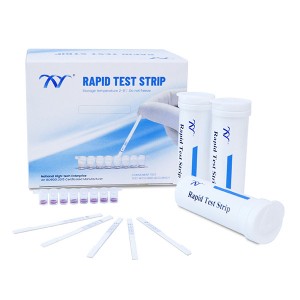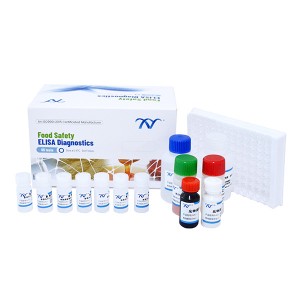In today’s globalized food industry, ensuring safety and quality across complex supply chains is a major challenge. With increasing consumer demand for transparency and regulatory bodies enforcing stricter standards, the need for rapid, reliable detection technologies has never been greater. Among the most promising solutions are rapid test strips and ELISA test kits, which offer speed, accuracy, and scalability—key factors for international markets.
The Role of Rapid Test Strips in Food Safety
Rapid test strips are revolutionizing on-site food safety testing. These portable, user-friendly tools provide results within minutes, enabling real-time decision-making for producers, exporters, and inspectors. Common applications include:
Pathogen detection (e.g., Salmonella, E. coli)
Pesticide residue screening
Allergen identification (e.g., gluten, peanuts)

Ideal for field use, test strips eliminate the need for lab infrastructure, reducing costs and delays. For emerging markets with limited resources, this technology is a game-changer, ensuring compliance with international safety standards like those of the FDA, EFSA, and Codex Alimentarius.
ELISA Test Kits: High-Throughput Precision
While test strips excel in speed, ELISA (Enzyme-Linked Immunosorbent Assay) kits provide laboratory-grade accuracy for high-volume testing. Widely used in meat, dairy, and processed foods, ELISA kits detect contaminants at trace levels, including:
Mycotoxins (e.g., aflatoxin in grains)
Antibiotic residues (e.g., in seafood and livestock)
Food fraud markers (e.g., species adulteration)

With the ability to process hundreds of samples simultaneously, ELISA is indispensable for large-scale exporters who must meet stringent import regulations in markets like the EU, U.S., and Japan.
The Future: Integration and Smart Technology
The next frontier combines rapid tests with digital platforms (e.g., smartphone-based readers) and blockchain for traceability. These innovations enhance data sharing across supply chains, building trust among global stakeholders.
Conclusion
As supply chains grow faster and more interconnected, rapid test strips and ELISA test kits are critical tools for safeguarding food safety. By adopting these technologies, businesses can ensure compliance, reduce recalls, and gain a competitive edge in the international marketplace.
Investing in rapid detection isn’t just about avoiding risks—it’s about securing the future of global food trade.
Post time: Jun-03-2025

